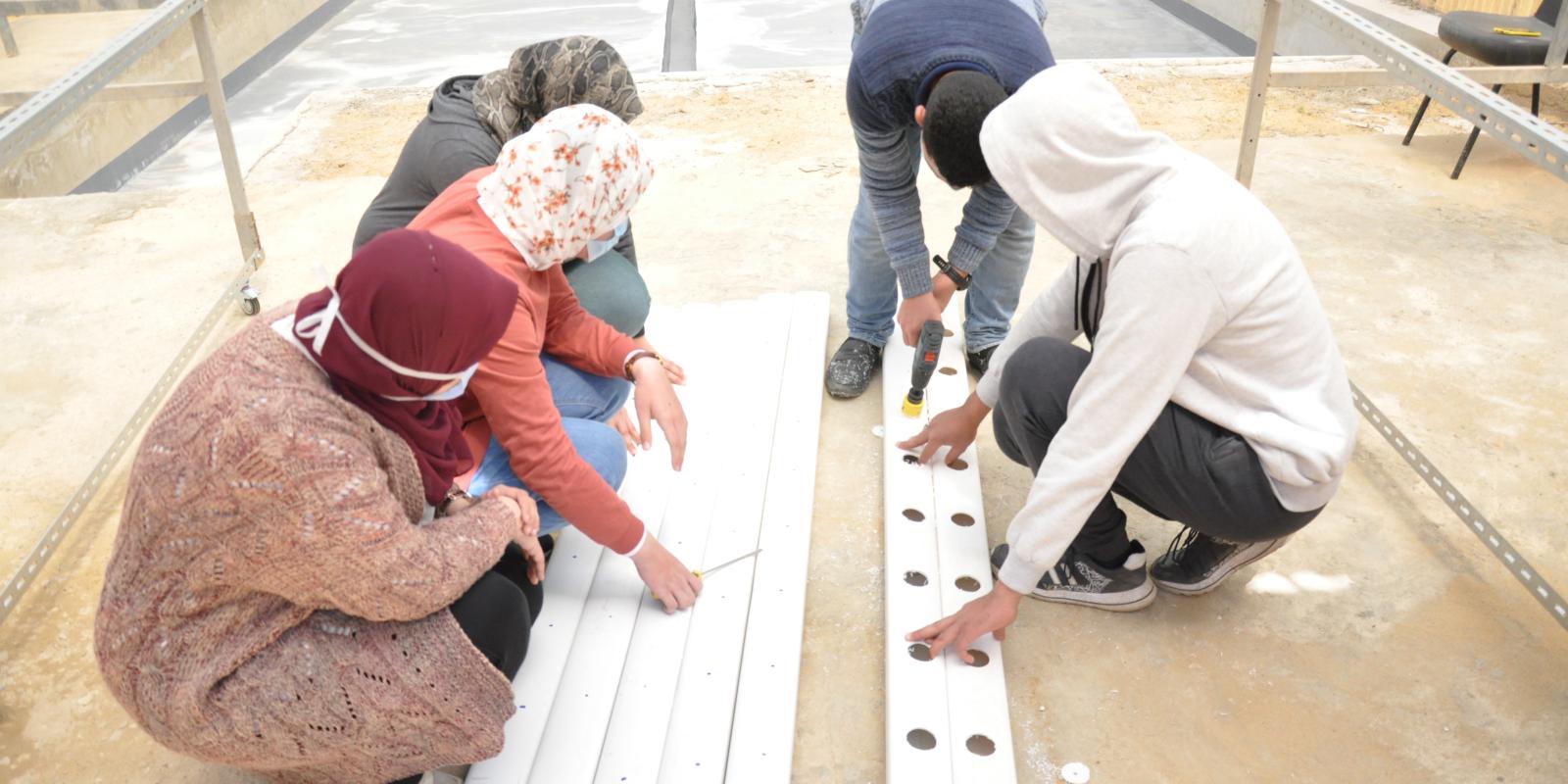
New Professional Diploma at AUC Prepares Students to Tackle Climate Challenges
AUC launched a new professional diploma this year for students interested in water, agriculture, and renewable energy — and more broadly, Egypt’s future.
The Water, Energy, Food Technologies Diploma (WEF) diploma couldn’t be more timely — 2021 marked the first year of the United Nations’ Decade on Ecosystem Restoration, a 10-year period ending in 2030, in line with the timeline scientists have said is the world’s last chance to prevent catastrophic climate change.
The WEF diploma was introduced this October through AUC’s Engineering and Science Services and the Center for Applied Research on the Environment and Sustainability (CARES). The diploma will provide graduates with the tools and knowledge required to meet the Egypt 2030 plan’s goal to reclaim 1.5 million acres of the desert and provide solutions for water, food and energy resource challenges in the country. Its curricula also include agripreneurship” for students interested in launching environmentally sound startups.
The diploma is a result of AUC’s participation in the SureMap project, an initiative co-funded by the ERASMUS+ Programme of the European Union that, in part, aims to establish engineering Master of Science programs at Egyptian partner universities, including Heliopolis University, Aswan University, Alexandria University and AUC.
The ultimate goal is to bolster a new generation of graduates equipped to tackle the issues facing Egypt.
“The diploma was curated to help provide innovative leaders with the technical skills needed to push the agenda of Egypt’s Vision 2030 targeting food security, water, and energy challenges,” said Hani Sewilam, professor at the Institute of Global Health and Human Ecology and director of CARES.
The diploma’s curriculum combines know-how in solar technology, hydrology and irrigation with mechanical, electrical and soil engineering. Courses include Modern Agriculture, Modern Aquaculture, Water Quality and Treatment. Water Desalination, Sustainable Energy Management and more. Through a multidisciplinary approach, graduates will learn to “interact and coordinate with environmental scientists and farmers” and mitigate human pressure on the environment.
“One of our main priorities in this program is to provide students with hands-on experience to go directly from the program and implement these solutions into communities,” said Yomna El-Awamri, the community projects manager with CARES. “So instead of relying on theory only, we made sure that at least 50% of our courses are applied.”
The diploma takes commercial opportunities along with financial restraints and incentives into account.
“The program aims to provide participants with a sound technical and practical understanding of innovation, design, entrepreneurship and [management of] sustainable WEF projects in the desert,” according to the course catalog.
“The program’s diversity is what makes it so innovative,” said SureMap’s project coordinator at CARES Natalie Tamer.
Anyone, including non-AUCIans, can enroll in the program, which is comprised of 18 credits and takes a minimum of one year to complete. Current students in the program are taking two courses for the first semester so that CARES can measure its success.
The first class of WEF graduates from AUC will be joining a country and worldwide effort to replenish and preserve the natural world, which has been so impacted by human activity. An arsenal of skills and education, combined with imagination and passion, will be necessary for their future, and ours.
___
Student recruitment for the second cycle of courses is now open. Classes start in early February, where four courses will be offered: System Automation, Sustainable Energy Resources, Water Quality & Treatment and Green Entrepreneurship & Agribusiness.
